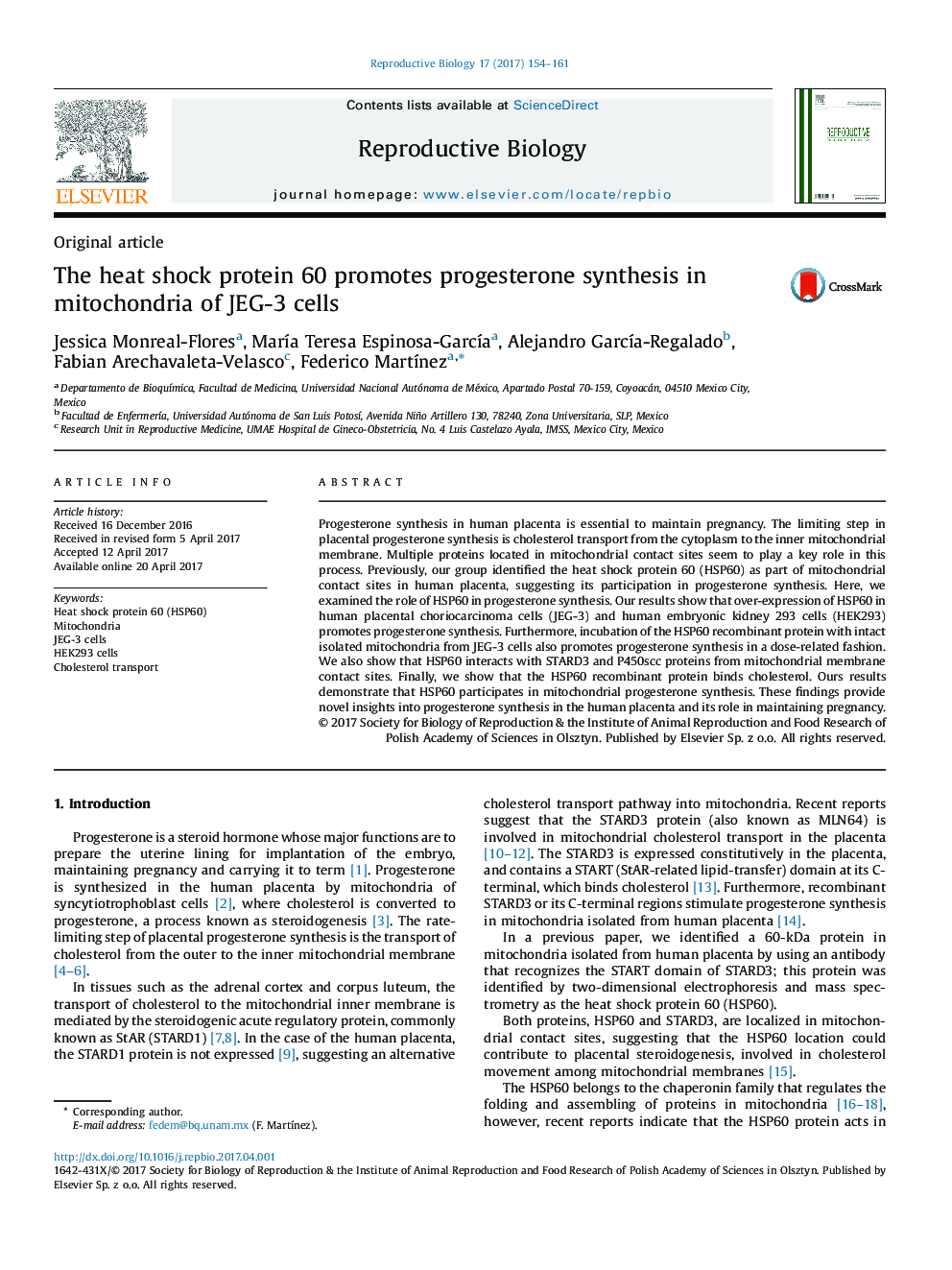| کد مقاله | کد نشریه | سال انتشار | مقاله انگلیسی | نسخه تمام متن |
|---|---|---|---|---|
| 5519055 | 1401098 | 2017 | 8 صفحه PDF | دانلود رایگان |

- HSP60 participates in the mitochondrial progesterone synthesis in choriocarcinoma JEG-3 cell.
- HSP60 interacts with proteins from the steroidogenic contact site, STARD3 and P450scc.
- The HSP60 protein binds cholesterol.
Progesterone synthesis in human placenta is essential to maintain pregnancy. The limiting step in placental progesterone synthesis is cholesterol transport from the cytoplasm to the inner mitochondrial membrane. Multiple proteins located in mitochondrial contact sites seem to play a key role in this process. Previously, our group identified the heat shock protein 60 (HSP60) as part of mitochondrial contact sites in human placenta, suggesting its participation in progesterone synthesis. Here, we examined the role of HSP60 in progesterone synthesis. Our results show that over-expression of HSP60 in human placental choriocarcinoma cells (JEG-3) and human embryonic kidney 293 cells (HEK293) promotes progesterone synthesis. Furthermore, incubation of the HSP60 recombinant protein with intact isolated mitochondria from JEG-3 cells also promotes progesterone synthesis in a dose-related fashion. We also show that HSP60 interacts with STARD3 and P450scc proteins from mitochondrial membrane contact sites. Finally, we show that the HSP60 recombinant protein binds cholesterol. Ours results demonstrate that HSP60 participates in mitochondrial progesterone synthesis. These findings provide novel insights into progesterone synthesis in the human placenta and its role in maintaining pregnancy.
Journal: Reproductive Biology - Volume 17, Issue 2, June 2017, Pages 154-161